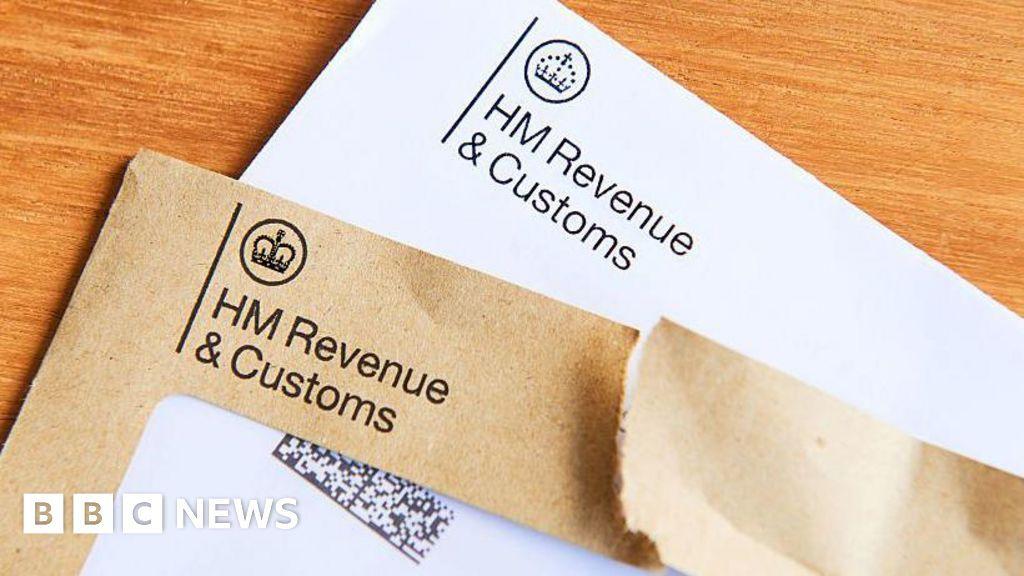HMRC Deploys AI to Monitor Social Media for Tax Evasion, Raising Privacy Concerns
3 Sources
3 Sources
[1]
HMRC using AI to scour suspected tax cheats' social media
This does not appear to be coming at the cost of jobs, with the government announcing the tax authority will gain 5,500 compliance staff. Nonetheless the disclosure comes at an uncomfortable time for the government, which is currently facing allegations from insiders that its national institute for AI is at risk of collapse. The technology secretary has threatened to withdraw its funding, and wants it to focus on defence research. Meanwhile, HMRC has already announced several efforts using AI which could streamline its operations. "It is not yet clear how far and fast HMRC has got with its AI developments, but it has already been successfully using software that compiles and analyses data for years," Mr Etherington said. "The primary focus at HMRC appears to be on using AI to make life easier for taxpayers." He said he expected the tax authority to look into developing tools which would help people get their tax returns right, as "a lot of tax revenues can be lost through errors and mistakes". "It has also been announced that HMRC will be using AI to help taxpayers access over 100,000 pages of guidance on its website," he said. "Anything that can help on that front is likely to be welcome news to taxpayers as HMRC's current online guidance can be bewildering to many."
[2]
HMRC uses AI to spy on social media posts
HMRC has admitted for the first time that it uses artificial intelligence (AI) to spy on taxpayers' social media posts. The tax authority examines workers' financial records, spending habits and tax returns to look for evidence of cheating - as well as posts on the internet. Social media posts about a large purchase or expensive holiday could trigger a red flag if the user seems to be spending beyond their means. A spokesman insisted the tools were only deployed for social media monitoring in criminal investigations with "robust safeguards in place". It is understood this has been the case for a number of years, and that all uses of the controversial technology by the tax office are within the law. However, advances in AI are likely to raise concerns about whether HMRC could in future deploy the technology more widely. Bob Blackman, a senior Conservative MP, said: "If they suddenly start taking legal action against individuals based on that, it seems draconian and very challenging - to put it mildly. "You've got to have a check and balance. The risk is that AI gets it wrong and someone is pilloried - it seems a bit strange if they start doing that with AI. Without a human check, you can see there's going to be a problem." The tools used to examine social media in criminal cases exist alongside Connect, a separate IT system used by HMRC to examine financial data for routine tax investigation. The Connect system was first developed over a decade ago, but is thought to be increasingly important as HMRC tries to save money by relying less on human beings to carry out its investigations. It uses billions of data points - including information to spot signs of tax evasion.
[3]
Smile for the taxman - HMRC's AI is watching | bobsguide
In a move that has ignited significant debate on data privacy and the role of artificial intelligence in public service, HM Revenue & Customs (HMRC) has confirmed it is using AI to monitor taxpayers' social media posts. While the tax authority insists this practice is currently limited to criminal investigations and is supported by "robust safeguards," the revelation has raised a storm of questions about the future scope of AI in tax enforcement and the potential for a "Horizon Post Office-type scandal." The new reporting, sourced from multiple UK outlets, confirms that HMRC's AI tools are being used to analyze social media posts, along with financial records and spending habits, to identify discrepancies that could indicate tax evasion. The system flags "red flag" purchases like expensive holidays or luxury items if they appear inconsistent with a person's declared income. This marks the first time HMRC has publicly admitted to this specific application of AI. This AI-driven surveillance exists alongside a separate, long-established system called Connect, which uses billions of data points to conduct routine tax investigations. However, the new focus on social media and the planned expansion of AI into "everyday" tax processes signals a significant shift in HMRC's strategy. With a target of closing a £7bn portion of the UK's £47bn "tax gap," the reliance on AI is seen as a way to increase efficiency and reduce the need for human investigators. Bob's Take: The Privacy Paradox and the "Trust" Problem "This development presents a classic privacy paradox for financial services and fintech. On one hand, the use of AI to combat tax evasion is, in principle, an efficient way to ensure fairness and generate revenue for public services. On the other hand, the move to monitor personal social media posts -- a space traditionally considered private -- erodes the public's trust in the government's handling of personal data. For financial institutions, this raises questions about the data they share with government bodies. While banks are already obligated to share data with HMRC, the expansion into social media monitoring sets a new precedent for what constitutes a "digital footprint" relevant to financial oversight. This is especially pertinent to our audience, where data protection regulations like GDPR and various state-level privacy laws are fiercely debated. The move by the Labour government to amend HMRC's privacy policy, shifting from a guarantee of "human judgement" to an assurance of "human involvement," is a subtle but crucial change. This could be the thin end of the wedge, paving the way for more automated, less scrutinized decisions." Is AI the New Informant? The most sensitive and rarely discussed angle in this story is the potential for AI to act as a state-sanctioned digital informant, blurring the lines between crime-fighting and surveillance. While HMRC insists the social media monitoring is for criminal cases only, the advanced nature of the technology means it can easily be scaled. The "Horizon Post Office-type scandal" comparison, raised by senior MPs, is no exaggeration. The core of that scandal was the blind trust placed in an automated system, leading to the wrongful prosecution of innocent people. A flawed AI model could misinterpret a social media post, flag an innocent person for a "red flag" purchase that was a gift or a loan, and trigger an automated investigation. The danger is that the system's "explainability" and "human involvement" safeguards are not robust enough, or that human agents are pressured to trust the AI's findings without proper scrutiny. The fear is not just about tax evasion, but about the chilling effect on freedom of expression. Will people self-censor their social media posts to avoid the possibility of a tax audit? Will they hesitate to share good news about a new car or a big holiday out of fear of being flagged by an algorithm? This moves the discussion from a technical cybersecurity issue to a fundamental question of civil liberties in a digital age. It's a conversation the UK needs to have now, before AI becomes so deeply embedded in government processes that rolling it back becomes impossible.
Share
Share
Copy Link
HM Revenue & Customs (HMRC) has confirmed the use of AI to analyze taxpayers' social media posts for signs of tax evasion, sparking debates on privacy and the expanding role of AI in government operations.
HMRC Introduces AI-Powered Social Media Monitoring
HM Revenue & Customs (HMRC) has confirmed its use of artificial intelligence (AI) to monitor taxpayers' social media posts as part of its efforts to combat tax evasion. This marks the first time the tax authority has publicly acknowledged this specific application of AI technology in its operations
1
.
Source: The Telegraph
AI's Role in Tax Investigations
The AI tools deployed by HMRC are designed to examine workers' financial records, spending habits, and tax returns, alongside their social media activity. The system flags potential discrepancies, such as large purchases or expensive holidays that seem inconsistent with a person's declared income
2
.HMRC insists that these AI tools are currently limited to criminal investigations and are supported by "robust safeguards." However, the tax authority's spokesperson did not provide specific details on the nature of these safeguards
3
.Connect: HMRC's Data Analysis System
Alongside the new AI tools, HMRC continues to use its long-established system called Connect. This IT system, developed over a decade ago, analyzes billions of data points to conduct routine tax investigations and identify signs of tax evasion
1
.Expansion of AI in HMRC Operations
HMRC has announced several AI initiatives aimed at streamlining its operations. These include:
- Developing tools to help taxpayers complete their tax returns accurately
- Using AI to improve access to over 100,000 pages of guidance on the HMRC website
- Potentially expanding AI use in "everyday" tax processes
2
Privacy Concerns and Potential Risks

Source: Bobsguide
The revelation of HMRC's AI-powered social media monitoring has sparked significant debate on data privacy and the role of AI in public service. Critics, including senior Conservative MP Bob Blackman, have expressed concerns about the potential for errors and the need for human oversight
1
.Some experts have drawn parallels to the "Horizon Post Office scandal," where an automated system led to wrongful prosecutions. There are fears that a flawed AI model could misinterpret social media posts or flag innocent individuals for investigation
3
.Related Stories
Government's AI Strategy and Funding
The disclosure of HMRC's AI use comes at a time when the UK government faces challenges with its national AI institute. The technology secretary has threatened to withdraw funding and wants the institute to focus on defense research
2
.
Source: BBC
Future Implications
As HMRC aims to close a £7bn portion of the UK's £47bn "tax gap," the increasing reliance on AI is seen as a way to enhance efficiency and reduce the need for human investigators. However, this shift raises questions about the balance between technological advancement and privacy protection in government operations
3
.References
Summarized by
Navi
[2]
Related Stories
Recent Highlights
1
ByteDance's Seedance 2.0 AI video generator triggers copyright infringement battle with Hollywood
Policy and Regulation

2
Demis Hassabis predicts AGI in 5-8 years, sees new golden era transforming medicine and science
Technology

3
Nvidia and Meta forge massive chip deal as computing power demands reshape AI infrastructure
Technology








